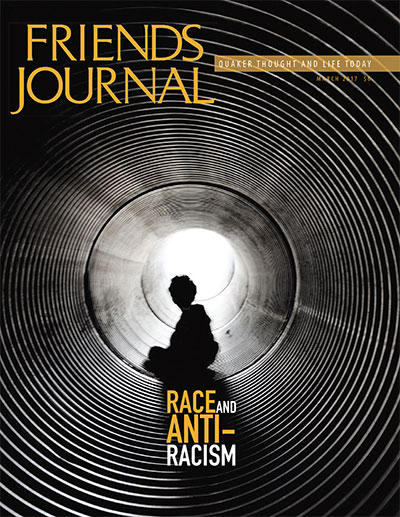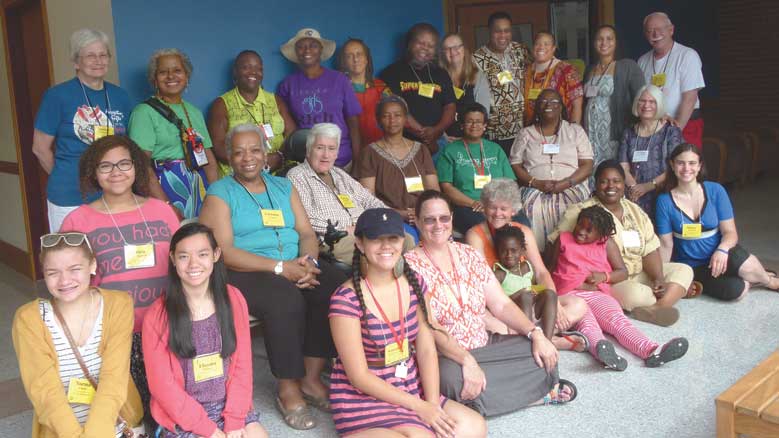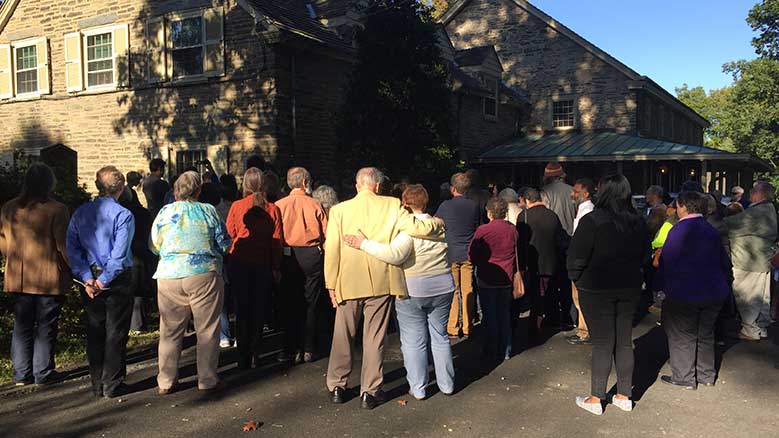Friends in North America have very complicated stories about race. Our histories have tended to be as regrettably forgetful as they are proudly inspiring. Quakerism in this continent was founded atop war and racial political alliances. Much of the Quaker “old money” in the United States can be traced to the geopolitics of English aggression against Native Americans and rival European empires. We’ve long been proud of being one the first largely European denominations to denounce slavery, but we’re not so quick to remember that the struggle—within the Religious Society of Friends—took a hundred years. We remember the work of white Friends on the Underground Railroad without really acknowledging that most of the “conductors” were non-Quaker African Americans facing the very real risk of re-enslavement. There are many striking examples of European American Friends doing amazing work for justice, but there’s also a long history of relegating darker-skinned Friends to back benches.
Over two years ago, Friends Journal brought you an issue full of stories from Friends of color. We had noticed that when the topic of race comes up, many white Friends rush to share their antiracist biographies of marches marched and coalitions convened. We are excited and inspired by such work, naturally, but drowned out by the pride were stories of struggles that African American Friends still face in our meetinghouses.
This time we return to the topic of race, but we’re looking instead at how Friends are working against racism. We’ve intentionally de-centered white voices again, though some are here this time. It is a good sign for the state of the Religious Society of Friends that we received far more submissions for this issue than we could print, but we recognize that this is not a topic for simply one issue. These are ongoing conversations that thread through spiritual, work, and personal lives.
Valerie Brown shares the difficulties of being the “Strong Black Woman,” someone always expected to hide vulnerabilities and rise above difficulties. It’s a very honest piece, and I don’t think one needs to be strong, black, or a woman to appreciate the wise advice Brown shares.
Phil Lord talks about Donald Trump, but not in a way you might expect. He shares how the emotions of dealing with the election have forced him to look inside himself to see how we too often fail at loving our neighbor and fall short of what we want to be. “Sacrifice without love is a waste of time,” he reminds us.
Self-reflection along similar lines comes through in a piece from Paul Ricketts about how change is happening in our Quaker institutions. Lucy Duncan and Noah White describe childhood discoveries of racism affecting their families and how this led to “undoing racism” work in their yearly meeting. Lauren Brownlee pulls the focus back when she takes us along on a difficult but inspiring trip to the new National Museum of African American History and Culture in Washington, D.C.
One of the rawest stories in the October 2014 issue, and in subsequent Forums, concerned the relationship of Avis Wanda McClinton with her suburban Philadelphia meeting. We’re sad to report that those heartbreaking difficulties continue, but in this issue we look at the positive fruits of a ministry she began. Honoring Those Known Only to God is researching the largely forgotten African Americans buried in many old East coast Quaker graveyards. One meeting has discovered burial records labelled “COL” for “colored” people, and “DO” for members “disowned” for their anti-slavery work. Even more healing is the story of how the meeting stretched its cultural expectations to hold a unusual worship ceremony commemorating the unmarked African American graves.
May we all continue to brave the difficult discussions, to hear one another, and have the wisdom to grow in love.






Comments on Friendsjournal.org may be used in the Forum of the print magazine and may be edited for length and clarity.